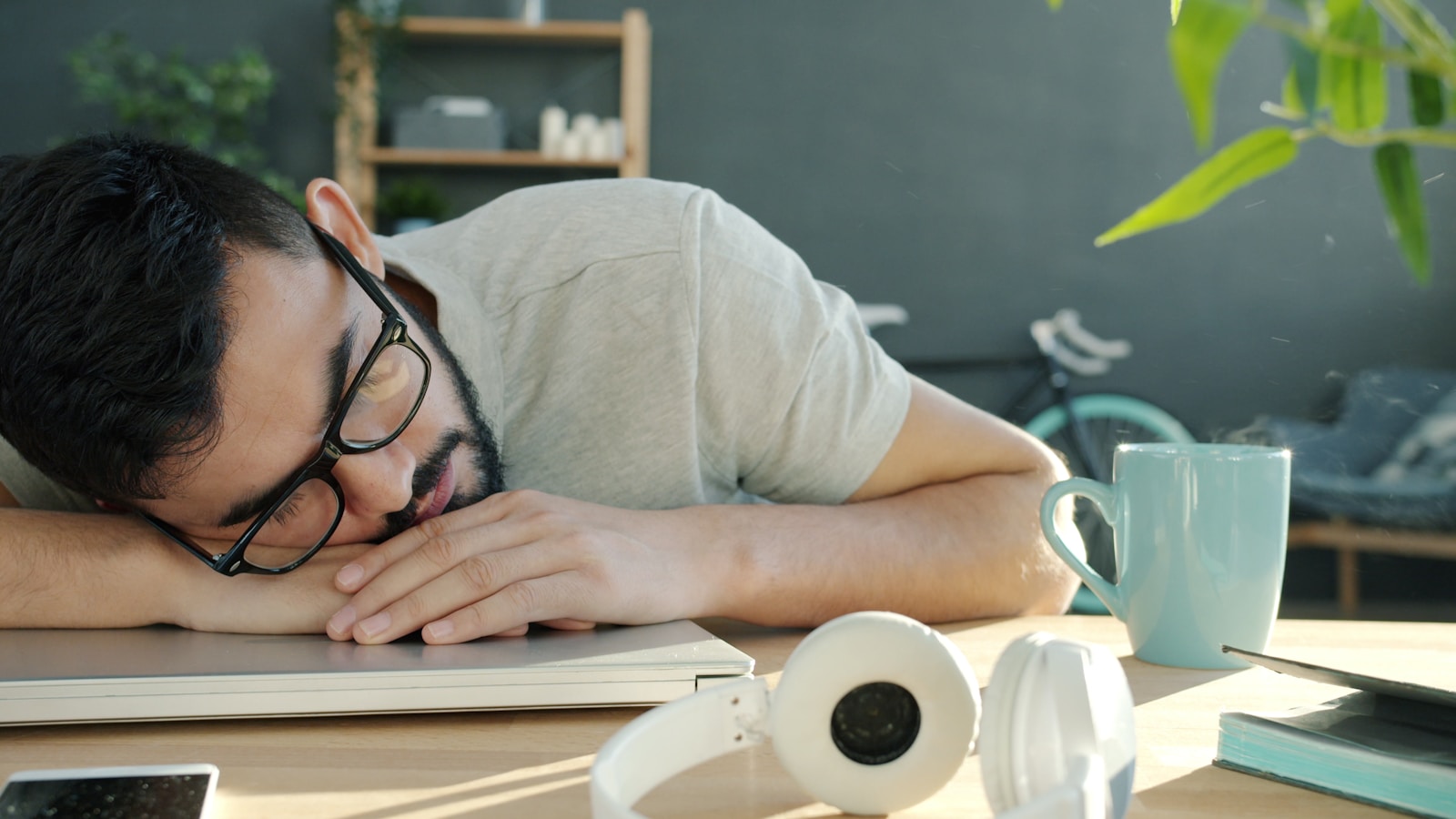When life gets busy, as it inevitably does in college, we tend to start thinking of sleep as a luxury. There are late-night parties that keep us awake, and then we have to stay up cramming for that big accounting mid-term. College students’ sleeping habits aren’t always the best, but if those sleepless nights start causing consequences to daily life, it’s time to make a change.
Here are some of the common causes of sleep deprivation among college students.
Freedom from authority – Even though most high school seniors don’t have a set bedtime, they probably have a curfew and someone keeping tabs on their lives. When kids go to college, they experience a newfound freedom. They can stay out as late as they want or just stay up chatting with a roommate into the wee hours of the night. Sometimes, the draw of freedom seems greater than the effects of sleep deprivation. But this can have an impact on the student’s health and grades.
Stress – When students worry about making good grades or turning in assignments on time, the stress can keep them up at night. Even if they aren’t pulling all-nighters studying, stress alone could be enough to keep someone awake. And when they do fall asleep, stressed out students may not be getting the best quality rest. According to a Stress in America survey, 42 percent of Americans report getting only fair quality sleep when they’re stressed out.
Alcohol – Many people mistakenly think that alcohol is good for sleep. It’s easy to understand where things got confused. Alcohol can make you feel sleepy and possibly make it easier for you to fall asleep. But you are likely to have a very restless sleep after you’ve been drinking.
New environment – When kids go away to college, the new environment may make it difficult for them to get shut-eye. Especially in a dorm setting, loud roommates or neighbors can interfere with getting to sleep or staying asleep.
Consequences of sleep deprivation
You know how you feel when you haven’t had enough sleep. You know it’s not good. But if you go without a good night’s rest for long enough, the consequences may be worse than you realize.
Here are some potential consequences of chronic insomnia.
- Increased risk for medical conditions – You may not be too worried about chronic health problems like heart disease or obesity, but you could be setting the groundwork for these problems and more.
- Increased risk of depression – People who suffer from insomnia are at a greater risk of developing mental health disorders like depression and anxiety.
- Increased risk for accidents – If you’re driving, operating heavy machinery or even just walking around while completely groggy, you’re not going to be as alert as you should be. Your reaction times may be slower, and you may not even see dangers that are imminent.
How to deal with sleep deprivation
You pull yet another all-nighter and then fall asleep on the bus and miss your stop on the way home. There’s another test coming up, and you see no end in sight.
And maybe you’ve gone without sleep for so long that it feels like you forgot how to sleep. But don’t worry. In fact, that’s probably hurting the situation. There are ways you can get back into a normal healthy sleep pattern again. Here are a few tips to help you get started.
- Focus on time management – If you’ve identified that you’re sleep deprived, it’s a problem. You need to do what it takes to find a solution, and that may mean cutting back on a little fun time. Set strict limits on how much time you spend on recreational stuff when you have tight deadlines. It’s important to blow off steam, but when that time is causing you more stress, it’s not worthwhile.
- Set a bedtime – Set a firm bedtime and work backwards from there. Create a plan for everything that’s stressing you out, and figure out exactly when you’re going to address it. Stick as closely to your bedtime as possible, and you should find it easier to fall asleep each night.
- Stay Cool at Night – If you find you are waking up uncomfortable and hot at night, it might be time to switch a mattress with cooling technology to help you avoid disruptions in your sleeping pattern. Do some research to find a bed in a box with the best cooling tech and have it delivered to you directly.
- Avoid alcohol and study drugs – Some students are in the bad habit of taking study drugs to keep them focused and alcohol to help them relax. Not only can these things lead to addiction, but they can also disturb your sleep patterns.
If you’re suffering from sleep deprivation, the first step is to understand its cause. Many college students have troubled sleep for the same reasons, and there are relatively simple answers. Start making sleep a priority, and you may be able to avoid the consequences of sleep deprivation.


